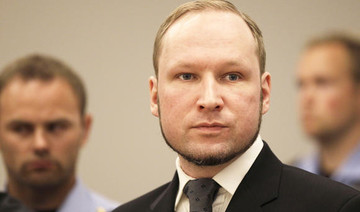NEW DELHI: Saudi Arabia’s transformation programs and Vision 2030 are gaining interest among university students in India, as one of the country’s most prestigious educational institutions hosts a special course on the topic this week.
The five-day course — organized by Jawaharlal Nehru University in New Delhi in cooperation with the Ministry of Education — is part of the Indian government’s Global Initiative of Academic Networks program aimed at encouraging exchanges with the world’s top faculty members and scientists.
The special course that will conclude on Friday has been led by Prof. Joseph Albert Kechichian, senior fellow at the King Faisal Center for Research and Islamic Studies in Riyadh, who specializes in West Asian politics and foreign policy, especially of the Gulf region.
The sessions have attracted students from different parts of India, said Prof. Sameena Hameed from the JNU’s Centre for West Asian Studies, who coordinates the course.
“It’s a very niche course focused on one country and a specific region but to our surprise it has gained traction,” Hameed told Arab News, adding that the number of registered participants was double the initial expectation of 50 students.
“I’m still receiving the request from students … down south in Kerala and other states as well, so it means these kind of subjects are gaining traction because it moves in tandem with India’s increasing bilateral interest and relations in the region.”
The rising interest among Indian students was also evident for Kechichian, who was visiting India for a third time after previous speaking engagements at JNU in 2006 and 2016.
“In 2025, I’m beginning to notice sharp improvements, sharp interests in terms of young scholars who are looking at Saudi Arabia in very different eyes; no longer looking at it only as the mere oil producer, but also as a dynamic society with which Indian communities must come to terms (with), and that’s a positive development,” Kechichian told Arab News on the sidelines of the sessions on Tuesday.
The course, which was also livestreamed to registered participants, aims to provide people with “a comprehensive understanding of the changes that are taking place in the Kingdom,” he added.
“Saudi Arabia is is a young country; the majority of the population is relatively young and they are in the process of acquiring new skills, opening new opportunities in terms of entrepreneurship and others, and, obviously, all of these young people need to have contacts with the rest of the world, among whom India, of course, plays an important role as well.”
Saudi-Indian ties have steadily gained prominence over the past three decades, and reached a new level of engagement in 2019, following Crown Prince Mohammed bin Salman’s visit to New Delhi and the establishment of the Strategic Partnership Council.
These aspects set the stage for further collaboration, which gained momentum when Saudi Arabia presided over the Group of 20 largest economies in 2020, followed by India’s presidency of the bloc in 2023.
The evolving relationship has not only deepened strategic ties, but also fostered cooperation in trade, security, new technologies and regional stability.
Amid “tremendous interest” to improve ties between Saudi and Indian business communities, Kechichian said that such courses will help both sides to get to know each other better and pave the way for future cooperation.
“All indications are, in fact, that both sides are trying to encourage business leaders to create entrepreneurship and to do as much as possible to benefit both sides,” he said.
For Aarya R. Sardesai, a political science student at the Janki Devi Memorial College in the University of Delhi, understanding Saudi Arabia better was integral to her education.
“Obviously, it will benefit me to know in terms of how my country and Saudi Arabia can have better relations and stronger ties in future,” Sardesai told Arab News.
“I think Saudi Arabia is trying to set a new trend; it is trying to incline itself with the fast-paced globalized world and the attempts that they are making to bring these shifts … are quite commendable.”
The changes happening in Saudi Arabia were a point of attraction for many of the participants.
“This is more about the future parts of Gulf countries and how they are going to go about diversifying their economies … it is very close to my research,” said Ph.D. student Deepika Matangi.
Kelvin Benny, a Ph.D. candidate at JNU, said that he took part in the course because of Saudi Arabia’s importance in India’s Act West Policy, a government strategy aimed at strengthening relations with Arab countries.
“So, for our academic input we need deep research on Saudi, and especially Saudi is a country undergoing a huge transformation from a typical oil-based economy to a modern economy,” Benny told Arab News. “So, in this context, Saudi is very essential.”


























